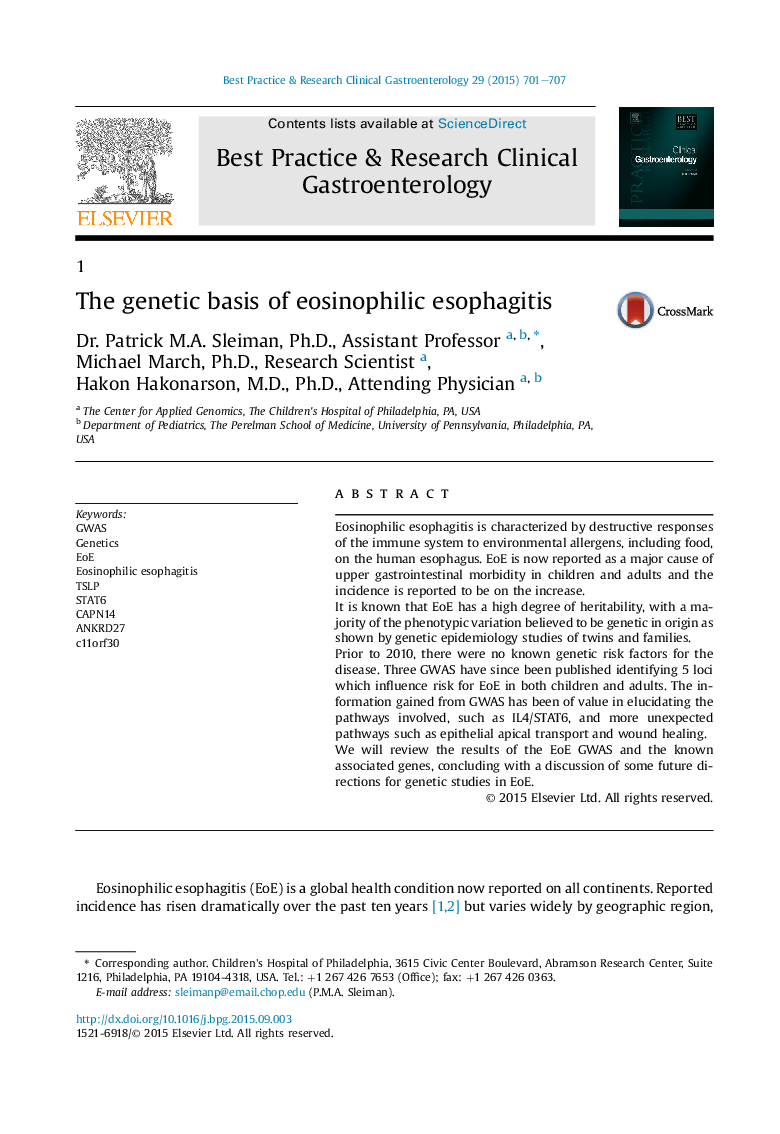| Article ID | Journal | Published Year | Pages | File Type |
|---|---|---|---|---|
| 3254049 | Best Practice & Research Clinical Gastroenterology | 2015 | 7 Pages |
Eosinophilic esophagitis is characterized by destructive responses of the immune system to environmental allergens, including food, on the human esophagus. EoE is now reported as a major cause of upper gastrointestinal morbidity in children and adults and the incidence is reported to be on the increase.It is known that EoE has a high degree of heritability, with a majority of the phenotypic variation believed to be genetic in origin as shown by genetic epidemiology studies of twins and families.Prior to 2010, there were no known genetic risk factors for the disease. Three GWAS have since been published identifying 5 loci which influence risk for EoE in both children and adults. The information gained from GWAS has been of value in elucidating the pathways involved, such as IL4/STAT6, and more unexpected pathways such as epithelial apical transport and wound healing.We will review the results of the EoE GWAS and the known associated genes, concluding with a discussion of some future directions for genetic studies in EoE.
